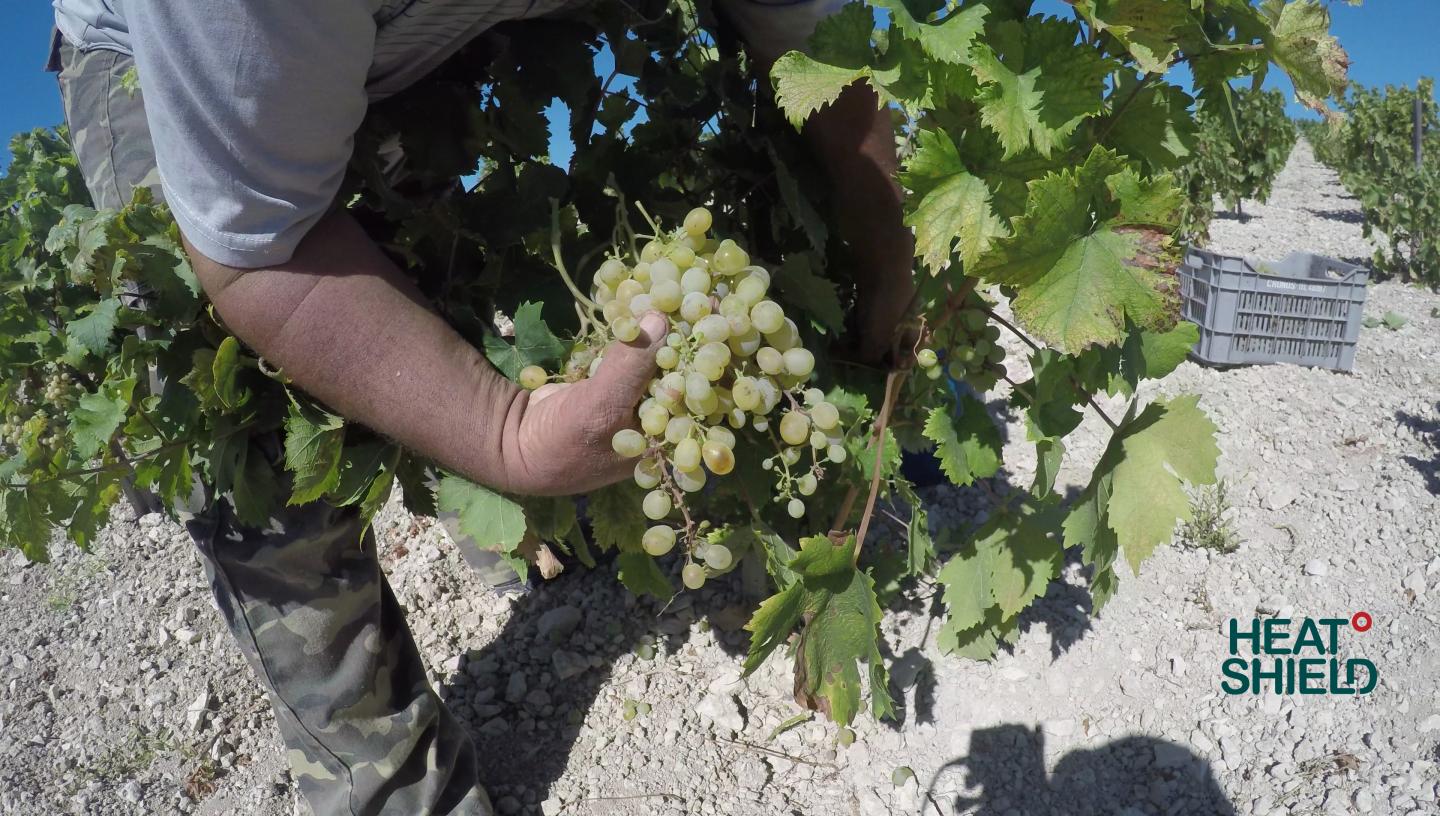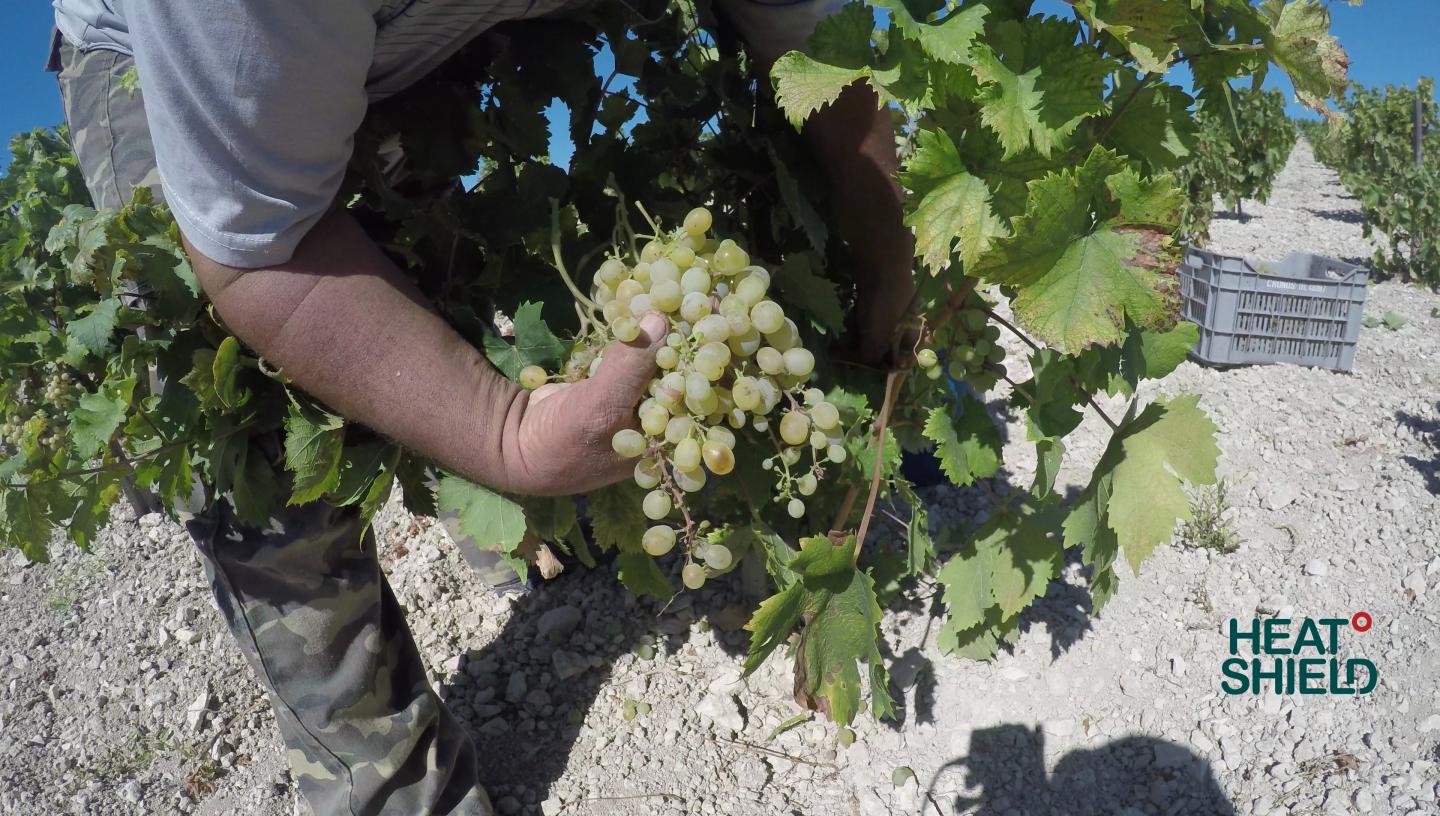
Credit: Taylor & Francis and Heatshield
Slight increases in temperature in Mediterranean regions from global warming could potentially result in labor, productivity and economic losses for the European wine industry, an article in the journal Temperature suggests.
Researchers studied the effects of high temperatures on the labor output and productivity of manual agricultural grape-picking workers in the wine production industry in Cyprus, who often work in conditions of up to 36 degrees Celsius.
They found that higher temperatures in the working conditions during the summer correlated with a significant labor loss of up to 27%, due to the environmental heat causing increased perceived exertion on worker's metabolic and cardiovascular systems and resulting in reduced output.
When temperatures increased, there was also a 15% decrease in the amount of time workers were able to carry out their duties due to the increased need for irregular and unplanned work breaks.
These research findings demonstrate that workplace heat, specifically in European agricultural workers, is accompanied by significant labor and productivity losses. With the wine industry comprising of 0.2% of world GDP, increased temperatures from global warming may negatively impact the industry and even potentially result in large losses worldwide.
For this study, the authors specifically chose to study grape-picking workers, as the production of wine is still largely dominated by manual labor unlike other industries and therefore the effects of global warming on workers in this industry is highly likely to more prevalent.
The authors warned that this research should not be considered an exhaustive large scale study of the impact of global warming on agriculture workers, and broader studies involving more workers and different locations should be undertaken in order to full assess the full impact.
The study is the first of its kind in Europe assessing the impact of workplace heat on European agriculture workers. The researchers used an innovative approach to assess labor output and productivity of seven workers called time-motion analysis which can analyse every second spent by each worker during every work shift.
###
The article represents a study within a research program funded by the European Union and led by an international consortium of scientists (HEAT-SHIELD). The overall goal of this work is to study the complex effects of climate change on the European society.
The study has received funding from the European Union's Horizon 2020 research and innovation programme under the grant agreement No 668786
Media Contact
Chrissy sihdu
[email protected]
07-540-406-084
@tandfnewsroom
http://www.taylorandfrancisgroup.com/
Related Journal Article
http://dx.doi.org/10.1080/23328940.2017.1338210





